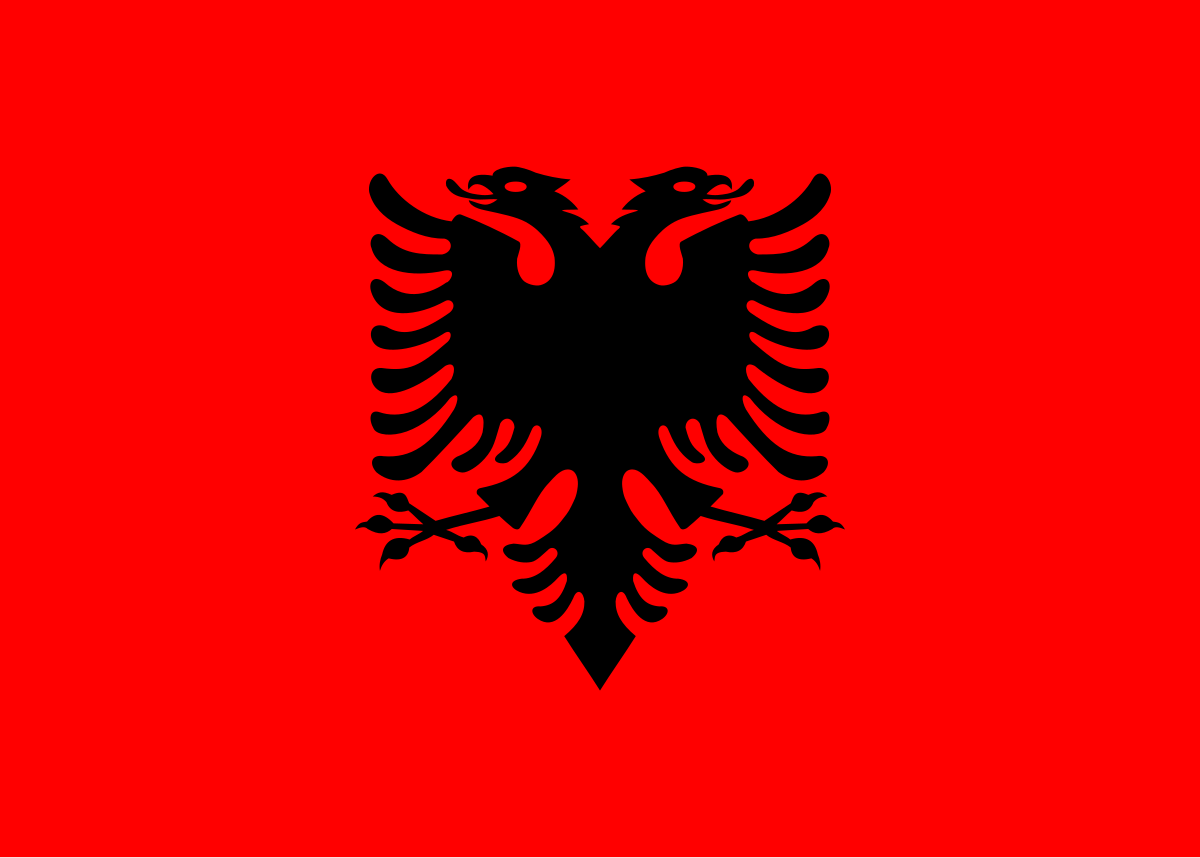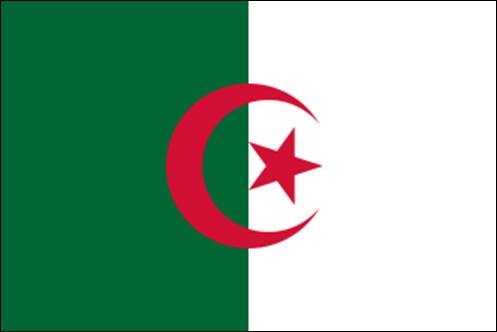Algeria is the largest country in the continent of Africa and the neighboring Arab region. It is in the northern part of Africa, between Morocco and Tunisia, along the Mediterranean Sea. Countries that share a border with Algeria include Tunisia and Libya to the east, Niger, Mali and Mauritania to the South and Morocco and Western Sahara to the West.
Algeria is an Arab country, but its ethnic history originates with The Berbers, who first occupied this region. Many invaders took over the country following The Berbers, with the Romans being amongst the first established civilizations to sweep through North Africa. After the Romans, came the Arabs in the seventh century. The Arab rule forced Islam onto the Berber population, resulting in mass numbers to convert. Those that refused were threatened with their lives and had to escape to the hills. Overtime, internal conflicts destabilized the Arab/Muslim stronghold, creating a shift in power. The Europeans took advantage of this instability, with the Spanish conquering Algiers, the modern-day capital of Algeria, in 1510, followed by the French seizing power during the nineteenth century. Algeria remained a French colony for a 132-year period, during which time, many French citizens emigrated to Algeria. This mass influx of the French people and their culture heavily influenced Algerian culture, government and language. The Algerians resisted French rule and fought for freedom many times, especially after World War II, and finally won independence in 1962. Opposition to the French rule served as a uniting force for Algerians and defined their sense of identity, which is predominantly inclined with the Arab culture. The strong influence of Arab ways of living and Islamic principles softens the physical borders of Algeria and almost blends them with those of the Arab countries, reinforcing Algeria as a part of the Arab region.
Family Life
As the culture in Algeria is predominantly Arabic, men tend to dominate society. Women in general are seen as weaker than men and are considered to need protection. Women are generally confined to the home and domestic duties and only interact with male family members or other women. Anything that requires leaving the house is done by men, even grocery shopping. Men have free reign over public areas, and it is common to see mostly just men in mosques, restaurants and marketplaces. Unfortunately, independence did not influence women’s rights much, due to opposition raised from conversative Islamic groups.
Surprisingly though, Algeria is historically known to offer more freedom to women in comparison to other Muslim countries. For instance, women are expected to cover their hair with veils only when out in public and not necessarily through their daily routines in and around the house. As Algeria continues to get influenced by Western culture, women’s rights movements are gaining momentum, but change has been extremely slow. Only seven percent of the female population holds a job outside the home and the roles that are available to women are mostly confined to what is traditionally seen as female professions, such as teaching or nursing. Given that Algeria tends to be more lenient in terms of restrictions on women, women are allowed to run for office, but this is extremely rare.
Most marriages in Algeria are arranged and are a union of two families, not just two individuals. Like most conservative countries under Islamic law and culture, women need the consent of their fathers before marriage and husbands after marriage for most activities, including working outside the home. It is very customary for a woman to move into her husband’s family home after marriage. Extended family homes are very common where married couples and their children live with the husband’s parents and grandparents. Algerian families tend to be large and women on average have seven to nine children. Another example of the leniency of the Algerian law with respect to women is a law passed in 1984 that granted child custody to women, but women under the law are considered minors, needing their husband’s permission for most things. Only men are legally allowed to file for divorce. Family inheritance is passed down from the father to the eldest son, and daughters are accompanied with a dowry or a monetary ‘gift’ that is given to the husband at the time of the wedding.
Language
The first official language of Algeria was Berber with the Berber people first occupying what is modern day Algeria. Berber is now spoken by about 25% of the population in Algeria and has many different dialects. Arabic was introduced early in Algerian history with the Arab invasion. When the French colonized Algeria, they tried to eliminate the native Algerian culture and one of the ways they did that was by trying to remove Arabic from schools and the professional stage and replace it with French. However, at independence, Arabic was declared the official language of the country. Algerian Arabic, which is a dialect of Arabic, is spoken by about 75% of the population. Even though French is being phased out of Algerian culture, it is still an important language in government, media and business and is offered as a second language in schools.
Dress
Traditional Algerian clothing has been influenced by the country’s rich and diverse cultural heritage, shaped first by the Berber, then Arab and finally French influences. It predominantly follows Islamic principles and customs and is modest in nature and covers all parts of the body, except for the face, especially for women.
A common traditional garment for men in Algeria is called Gandoura. It is a long, loose-fitting robe that reaches down to the ankles. It is made from lightweight fabrics like cotton and is usually sleeveless, making it ideal for the warm climate in Algeria. The Jebba is another traditional garment worn by men for more formal occasions like religious holidays, weddings and other special events. It is usually decorated with embroidery around the neckline and chest, showcasing Algerian craftmanship.
A common traditional garment for women is called Haik, which is a large rectangular piece of cloth, which covers the body and is wrapped around the head, leaving only the face exposed. It is generally worn by women in cities, particularly in Algiers, and is a sign of modesty and respectability. The Karako is a more formal wear for women in cities, which consists of a velvet jacket that is heavily decorated with embroidery. The jacket is worn over a full sleeve blouse and is paired with loose-fitting formal trousers. The Karako is a symbol of elegance and is worn for special occasions.
Cuisine
Algerian cuisine is a rich blend of Mediterranean, Berber, Arab and French culinary practices and influences. Algerian dishes are typically very flavorful, incorporating fresh mediterranean spices such as cumin and coriander. Couscous is a very commonly used grain in the Algerian diet and is often served as a stew with meat and cooked vegetables. This dish is so standard for Algerians that in Arabic, it is called ‘ta’am’ which simply means food. Lamb is the most popular form of meat and is cooked over an open fire and served with bread. Strong black coffee and sweetened mint tea are staple daily drinks.
Holidays
Algerians celebrate both religious holidays as well as non-religious ones. The religious holidays that are commonly observed are Muslim holidays, following the Islamic calendar. The most celebrated Muslim holiday is Eid al-Fitr, which marks the end of a month of fasting called Ramadan. This holiday is celebrated with a visit to the mosque for prayer followed by a large elaborate meal that is shared with friends and family. Gifts are commonly exchanged on this day as well.
The non-religious holidays in Algeria include January 1st, New Year’s Day, May 1st, Labor Day for worker solidarity, July 5th, Algerian Independence Day. Government offices and most businesses are closed in observance of these national holidays.
Business Culture
Business culture in Algeria is different from the west in that most business agreements are made based upon personal relationships and/or references. No transactions are made until trust is established between the parties involved. Honor and reputation are an important part of Algerian culture and things may get exaggerated in business dealings for the sake of one’s reputation. Algerian business culture can be influenced by favors that were done and favors that are owed. Business introductions and dealings tend to be less formal than in the west. Business cards and detailed contracts are not commonly used. Islamic observances and practices influence the business calendar. Friday is a special day for Muslims. This is a day of gathering and special prayers. So, many offices are closed for Friday prayers and most businesses are closed for Ramadhan.
References
Wikipedia, The Free Encyclopedia. (Last edited 2025, April 15). “Culture of Algeria”. Culture of Algeria – Wikipedia
Wikipedia, The Free Encyclopedia. (Last edited 2025, April 28). “Flag of Algeria” Flag of Algeria – Wikipedia
World Culture Encyclopedia, Countries and their Cultures, Forum. (Website 2025 Advameg, Inc.). “Culture of Algeria”. Culture of Algeria – history, people, clothing, traditions, women, beliefs, food, customs, family
Commisceo Global. (2022). “Algeria – Culture, Etiquette and Business Practices”. Algeria – Language, Culture, Customs and Etiquette
LibreTexts Humanities. “12.10: Algeria”. 12.10: Algeria – Humanities LibreTexts Another Travel. (Copyright 2003-2025) “Algerian culture, customs and etiquette”. Algerian Culture | Customs | Traditions | Etiquette | anothertravel.com




